2025 ACM Awards
We’re beyond thrilled to celebrate our incredible MAX artist partners who’ve secured nominations for the 2025 Academy of Country Music Awards—our...
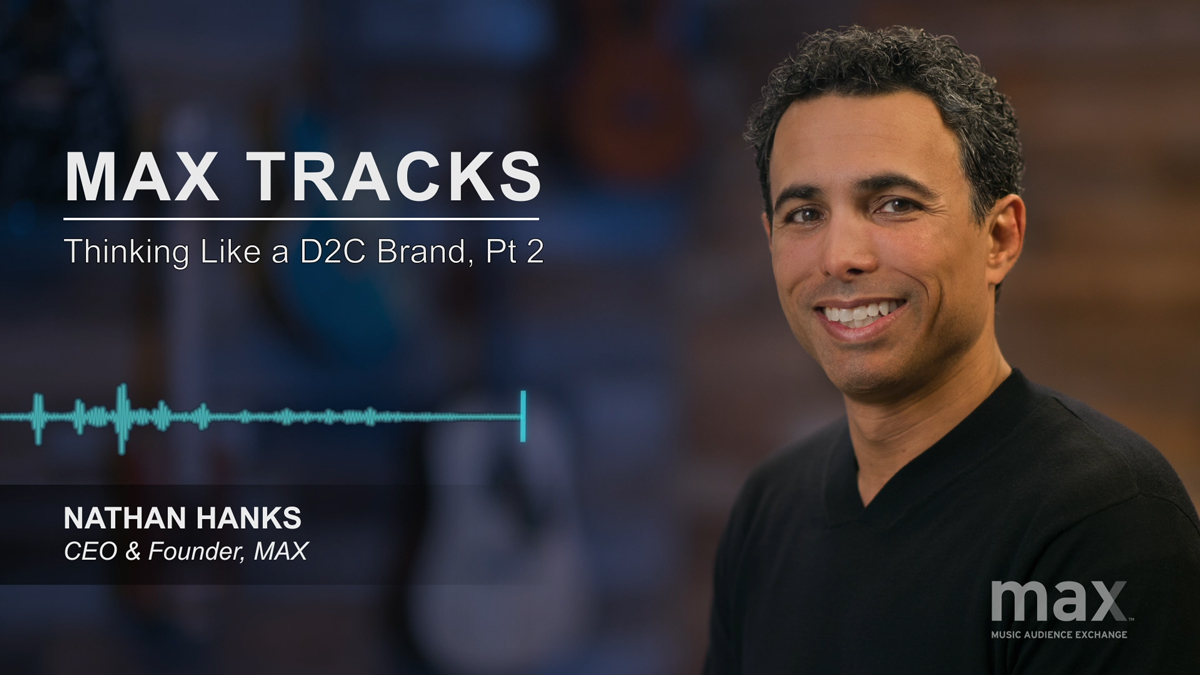
On our last MAX Track, “Thinking Like a D2C Brand, Pt 1,” we talked about direct to consumer (D2C) brands and the lessons that they offer for all of us, particularly artists. The big idea for D2C brands, as the name implies, is that they go direct to the consumer. They know exactly who their customers are. They typically don't have intermediaries or rely on stores to sell. As an artist, you feel like you have a lot of control over your social media accounts. And those accounts are very important for getting people to know about you and for communication. But whether it's Instagram, Facebook, Tik Tok, Twitter, Spotify, or Pandora, those platforms don't necessarily give you control over that information, that data on who the fans are.
Who are these folks? What are their demographics? How do you contact them by email directly, or by phone, or by text? We're going to talk a little bit about why having your fan data is important. I'll give you a couple of reasons. For one, social and streaming platforms change over time. Reaching fans organically is getting tougher. I can remember the early days of Facebook, where you had a thousand followers or fans, and you could post or send out a message, and because people’s feeds weren't as busy, you could get a high number, like 20%, that would see your message. Today there's so much content in our feeds including advertising, that it’s harder to reach your fans organically.
Artists can also learn a lot from the world of CRM, customer relationship management software, by organizing information on who your fans are – something that the D2C brands understand. Like what city are my fans in? And who should I reach out to when I'm traveling through a certain city to do a show? What are their likes and dislikes, the type of music they listen to? Truly knowing your fans and being able to go directly to them to engage, to buy merch, to buy tickets, and to stream your songs.
So let's talk about some of the techniques for leveraging an audience that you might have built on a platform, maybe on Instagram or Facebook, and moving those into a database like an email list, a CRM system, or even a spreadsheet. How do you begin to collect those names? I'll give you just a couple of ideas to think about.
An interesting company to check out is Patreon, a platform where artists and creators can get support from their fans or “patrons.” Artists can create accounts on Patreon and ask their fans on social media to support them and their music. Patreon is built around this idea that when people support you, there are special things that you do for them—like offering them perks like sneak peeks, exclusive offers, and more. I believe that fans will support artists they love on Patreon just because they want to help them keep making music, especially during these crazy times that we're in right now where artists can’t tour. Another great thing about Patreon is that they allow artists to export their “patron” data as an email list so they can connect with their supporters through email marketing.
We'll get into how you can use email marketing and other methods to reach your fans directly later, but imagine you've built an audience on Facebook or Instagram, and now you're converting some of them to support you financially on Patreon. Now you have their information and their email, and you know who they are, and you can tell them when you're coming through their town to sell tickets. So it's really using your platforms to reach your fans, collecting their data, and then sending the right types of messages to continue to expand your audience and monetize it by going “direct to consumer.”
Another way to leverage your audience is to survey your fans. So for example, you can go into MailChimp or Google Forms and put together basic surveys. Like what type of album would you like to see me do next? Or I'm thinking about doing a cover on my YouTube channel, what should it be? Have them fill out the survey and tell you what types of content they want to see. And you have the survey ask them to provide their email address, and even include an opt-in invitation so you can message them in the future. This is a simple way to give your fans the chance to share their opinion, feel like they are part of a song or a music video you're making, or even register to win a contest. These are all opportunities to get to know your fans and start building a relationship with them.
Something else you can do that's really powerful around surveying and specifically around playlists is Set the Set. It's one of our tools here at Music Audience Exchange, and you can check this out at settheset.com. Artists can set up an account and ask their fans to create their perfect set list for your next livestream, or pick their top 5 favorite songs of yours, or maybe even bring in songs from other artists that you're thinking about covering. And fans can weigh in with musical choices, really easy to do and fun. And what's cool is that every fan that uses it is providing information and creating that direct connection with you as one of their favorite artists. So take a look at that. It's another really interesting twist on surveying that's specifically built around playlists.
There are other interesting companies, like Seated, a scheduling widget. I haven't looked a lot into them a ton, but maybe you're going to do a livestream and you want people that register to get a reminder. Again, you're collecting information from your fans who are interested in the things that you're doing. Two other companies I wanted to mention are SuperPhone, started by Ryan Leslie, a former artist, and Community, which has gotten a lot of buzz recently with a lot of celebrities and influencers using it. You register for these services, and they enable you to get a phone number, probably through a technology service like Twilio, to connect with your fans. Think of it as a phone number that you control through an app. It doesn't actually ring your phone, but works as sort of a text messenger with software on top.
With tools like SuperPhone, there's interesting integrations where you can connect to your channels for things like ticket or merch sales, or getting fans to subscribe to your YouTube channel, or go stream your latest song release. When it's time, you can go into a group of your fans based on their location and shoot them a text saying, "Hey, my new single's out, go stream it." And a workflow kicks off where responses are handled by bots that help build that relationship to get more information. It's a really interesting way of building up that fan database.
The takeaway lesson today is to think more like a D2C brand – get to know your fans, gather their information, and use tools like surveys and email marketing to do so. The more you know about your fans, the better – and what we've learned at our company, Music Audience Exchange, is that when the fans really love you, they will take the time to build that relationship and provide information for the artists they love.
In Part 3 of this series, we’ll discuss how to build relationships with your fans – including how to get your fans to engage more with you, to learn more about you, and to become bigger fans.
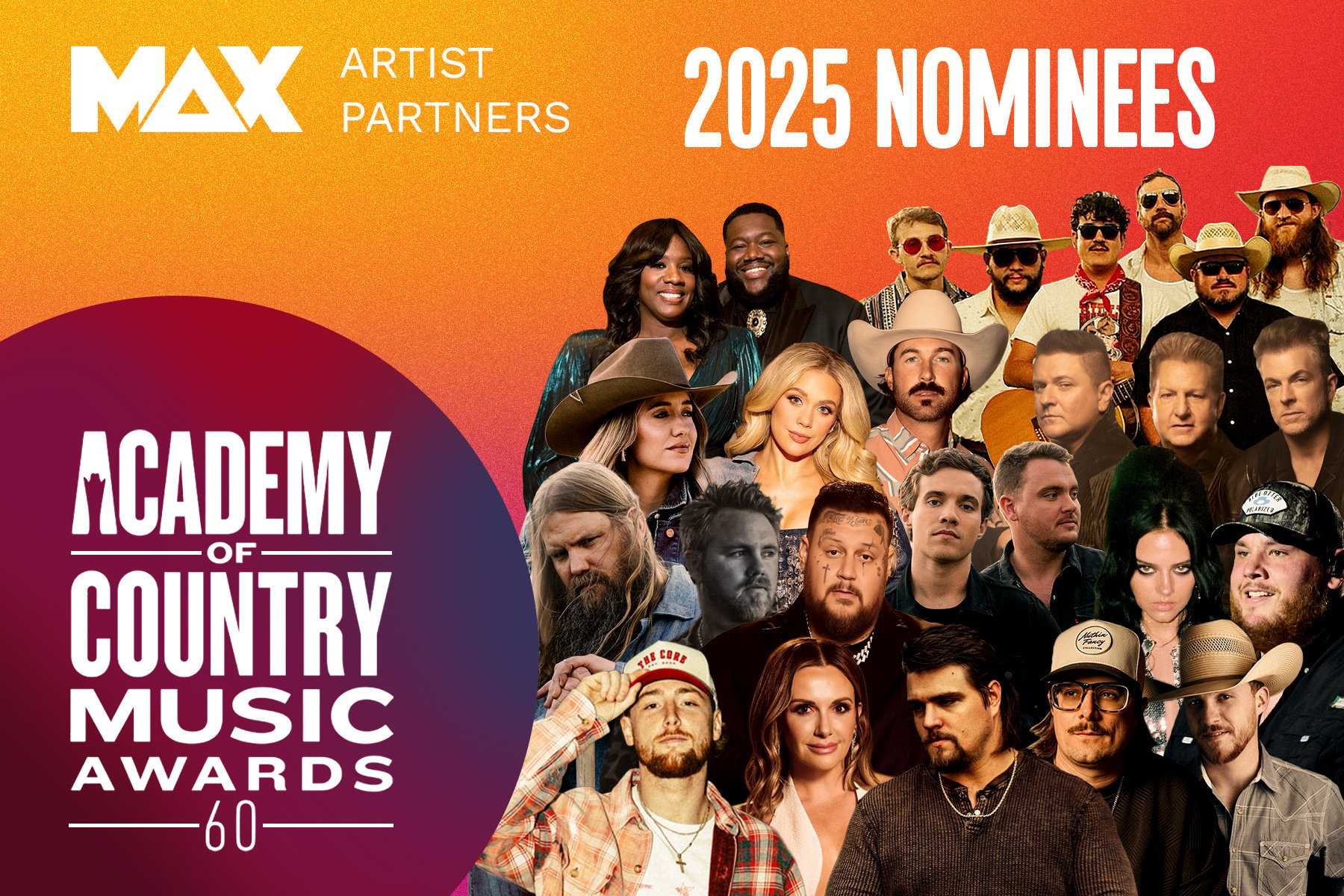
We’re beyond thrilled to celebrate our incredible MAX artist partners who’ve secured nominations for the 2025 Academy of Country Music Awards—our...
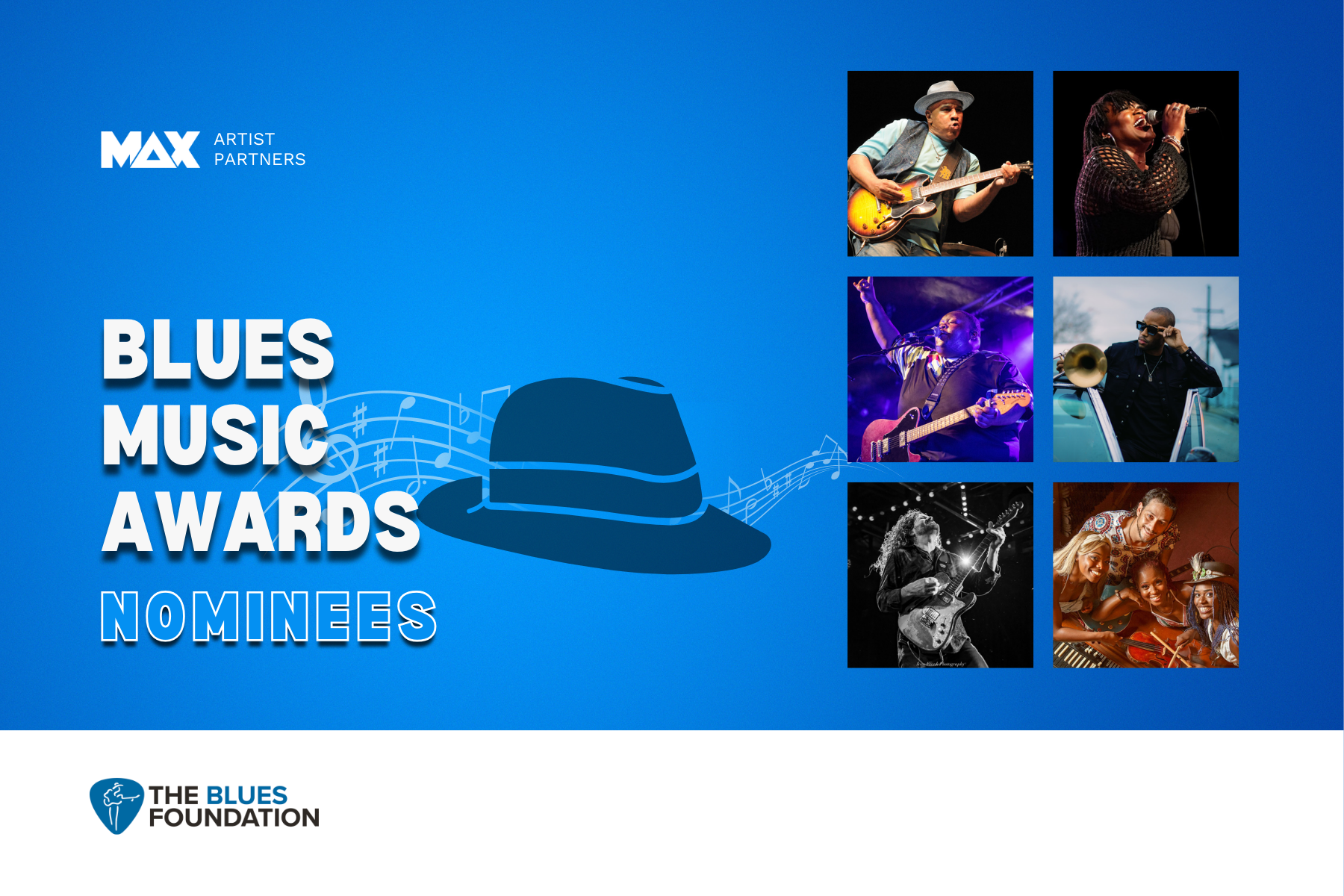
We’re fired up to celebrate our incredible artist partners who are nominated for the 2025 Blues Music Awards! 🎶🏆Blues music may be timeless, but...

It’s a common question: what drives the cost of an artist partnership up (or down)? I mean, an artist’s fee can range from four to seven figures…and...
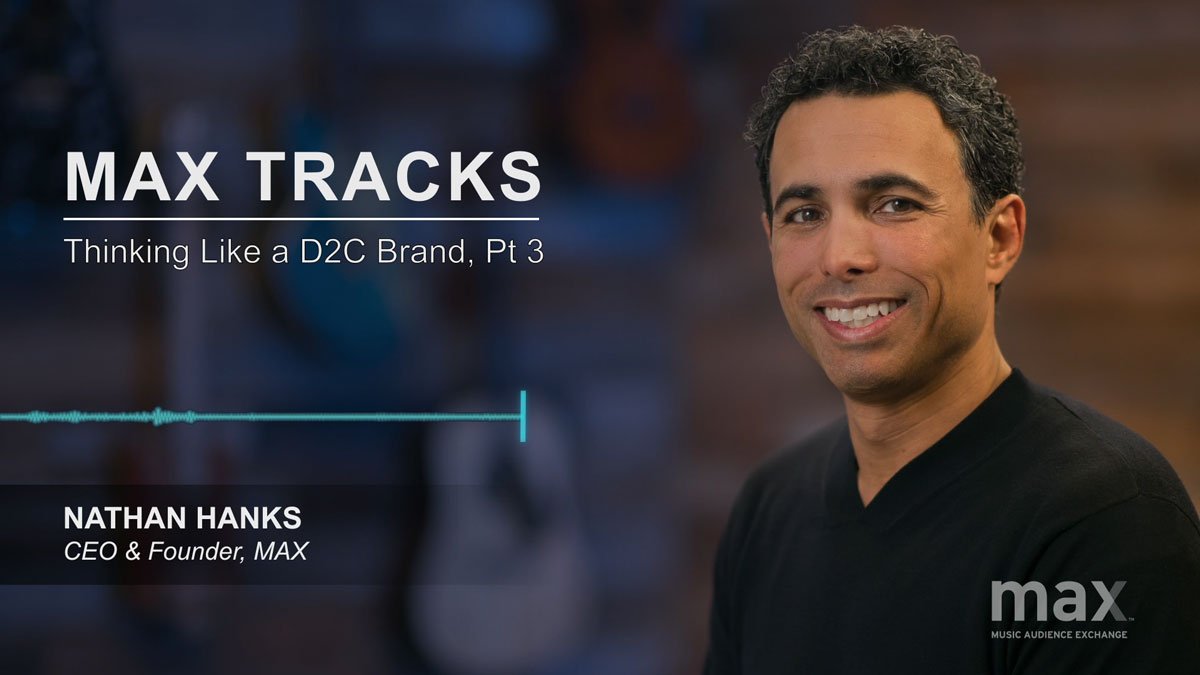
This week we wrap up our three part series on direct to consumer (D2C) brands and the marketing lessons they offer to artists. In part one we talked...

So far in this series, we have focused on the way music can define us as individuals, as well as the power music has to connect us across cultures. ...
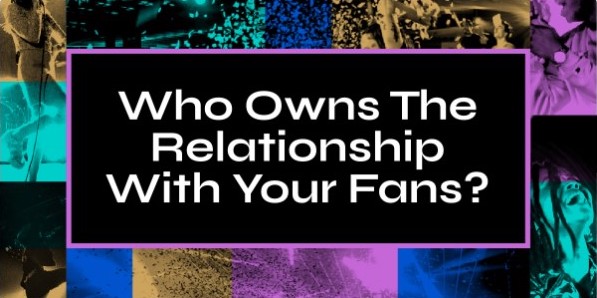
Originally published on 03/09/2022 through Bandsintown Facebook knows exactly who your fans are. So does Spotify. And YouTube. And TikTok. And even...